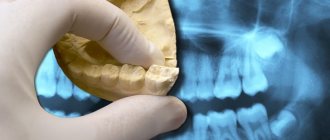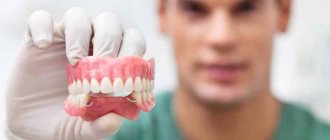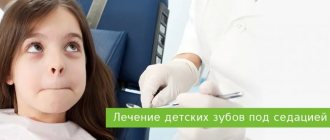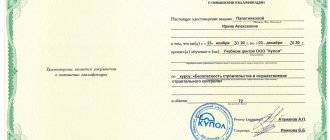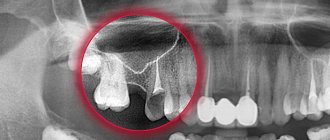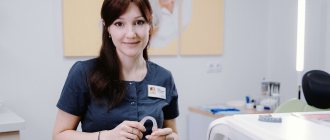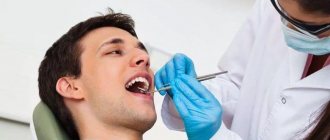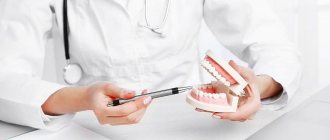Medicine consistently leads the list of “dream professions.” The most responsible school graduates strive to spend most of their lives in a white coat. Sociological studies show that a consistently high demand for medical specialties is not evident in all regions of the country. Among graduates from Moscow and St. Petersburg, for example, there are fewer people wishing to make a career in the doctoral field, while stability is observed within the professional community of doctors in these cities.
The regions are another matter: provincial youth still have a great desire to get one of the doctoral professions. And if there is a sufficient amount of knowledge for this or an emphasis is placed on paid education, then one question remains on the agenda - which university or academy to apply to.
Perhaps, initially thinking about entering a medical university, boys and girls are more obsessed with the idea of being enrolled in the 1st year. Nevertheless, the fundamental factor in evaluating an educational institution should be the quality of education. People who understand this try to enter prestigious universities - of course, Moscow and St. Petersburg. The winners of the All-Russian and International Olympiads and other “golden” contingent who have the right to enter without competition also come here.
Reference: healthcare is the only area of non-humanitarian education where the average Unified State Exam score exceeds o. In Russia, more than 75 universities of the Ministry of Health place excessive demands on the quality of basic knowledge of applicants. This indicates the undiminished prestige of the medical profession.
In the field of paid education, places were distributed as follows:
- 32 thousand applicants in 2016 preferred economic specialties;
- 20 thousand people leaned towards management;
- 15.5 thousand are future doctors.
What does a periodontist do?
A periodontist treats gum inflammation, i.e. mucous membrane and soft tissues that surround and support teeth. Teeth and gums form a single system, and without healthy gums there are no healthy teeth. The periodontist treats stomatitis (inflammation of the mucous membrane), gingivitis (inflammation of the gums), periodontitis (gingivitis turns into it if left untreated), etc.
We invite you to familiarize yourself with the Profession of Dentist: where to study, salary, pros and cons
The most unpleasant disease of this kind is periodontal disease. It occurs when an infection enters the space between the tooth and gum. Pain in the gums and bad breath are the most harmless things it leads to. Over time, due to periodontal disease, teeth no longer stay in their sockets, become loose and fall out.
The best medical universities in the world
If you are planning a foreign career as a doctor, it is better to think about enrolling in another country. Domestic diplomas must be confirmed in a special way before being allowed to work. These TOP 10 universities are considered the best for young doctors. To get there you need to put in a lot of effort and perseverance.
Harvard University
Harvard is suitable for those who want to receive a modern medical education, taking into account international experience. For those who see themselves in pharmacology and other related sciences.
Available specialties:
Medical business.
The division into specialties differs from the Russian one. In America, the diploma does not specify any specialty. At the time of graduation, you simply become a Bachelor of Science in Nursing.
How to proceed
To get into Harvard Medical School, you need to write a motivation letter and talk about your achievements in science and other areas of activity. You must also send to the university a copy of your school certificate, the results of the language exam, two recommendations from teachers, and an application in the prescribed form. There is a fee of $75, but it can be waived if you provide proof of low income. Some applicants are given an interview.
How the training works
Harvard has a whole system of teaching hospitals. There, students undergo continuous practice under the guidance of real doctors. At the same time, there are many offers for students not related to the main specialty, since training at Harvard Medical School is based on the Liberal Arts .
Oxford University
Lectures at Oxford are given by leading professors of medicine from around the world. This is what ensures high competition for one vacant position.
Available specialties:
Medical business.
How to proceed
In Britain itself they approach preparation for Oxford very responsibly; children study in special classes from the age of 12-13. But you can also try to submit documents from another country. You need to write an essay on a given topic or pass a test, which is compiled by the university itself. English exam results are attached to them. Admission takes place through the UCAS portal common to all UK universities. Application costs £60.
How the training works
The Basic Medicine course is designed for students who want to understand the scientific research behind modern medicine. A lot of effort is also expended on clinical practice in one's own system of hospitals and clinics, but one moves on to it only after receiving a bachelor's degree.
What does an orthopedic dentist do?
An orthopedic dentist is a specialist in prosthetics. Abbreviated as prosthetist. When the dentist-therapist has carried out the treatment and has exhausted all possibilities to restore the tooth with his own means, he refers the patient to a prosthetist. He, having a good understanding of the biomechanics of the dental system, offers the patient options for prosthetics.
Takes impressions of teeth, on the basis of which the dental technician prepares dentures. Then the doctor tries on, adjusts and finally secures them in the patient’s mouth. Today, an orthopedic dentist has many prosthetic options at his disposal – from crowns, bridges and inlays to implants. Removable dentures are also used. But with the development of technology, these inconvenient designs will gradually become a thing of the past.
Duration of training and possible specialties
The course of basic medical education, including dental education, lasts 5 years. Then the graduate is accredited, receives the right to work independently as a therapist, and after a year of practice in a clinic, he can enter residency to master a narrower specialization:
- periodontology;
- surgery;
- orthodontics;
- orthopedics;
- children's dentistry.
After 9th grade, they study to become a dentist in medical colleges, but not in all of them. Colleges are prepared in two specialties:
- preventive dentistry (02/31/06) - these are future hygienists who provide preventive dental care and engage in professional oral hygiene;
- orthopedic dentistry (02/31/05) – these are dental technicians who make removable dentures, pin inlays, crowns, maxillofacial and orthodontic devices.
Most colleges accept only 11th grade graduates for both majors. After the 9th grade, you can only become a dental technician, and not in all educational institutions: in Moscow, for example, there are no such colleges; in St. Petersburg, the only medical college No. 3 recruits ninth-grade graduates for the specialty “orthopedic dentistry.” The duration of training on the basis of basic secondary education is 3 years 10 months. After 11th grade, study for a year less, and future hygienists complete the full course in just 1 year 10 months.
Dentists require assistants - nurses. This profession can also be obtained in medical college, including after 9th grade. Graduation from a secondary specialized educational institution and work experience in medicine open the way to admission to the Institute of Dentistry based on internal university exams, and not on the results of the Unified State Exam.
Where to study
There are quite a few universities in Russia that teach dentists. Sometimes medical faculties are opened in non-specialized universities (for example, in St. Petersburg State University, RUDN University, BelSU), but traditionally schoolchildren strive to get into specialized educational institutions - medical institutes with a rich history. When choosing where to study to become a dentist, pay attention to the following universities:
- First Medical University named after. I. M. Sechenov;
- Moscow State Medical and Dental University named after. A. I. Evdokimova;
- Tyumen State Medical University;
- Ryazan State Medical University named after Academician I. P. Pavlov;
- Krasnoyarsk State Medical University named after. Professor V.F. Voino-Yasenetsky;
- Russian National Research Medical University named after. N. I. Pirogova;
- Penza State University;
- Volgograd State Medical University;
- Kursk State Medical University;
- Kazan State Medical University.
We suggest you read Proper nutrition when wearing braces - what can and cannot be eaten?
Competition for the budget of dental faculties in medical universities in Russia - 5-10 people for each of 30-40 places. Therefore, some applicants immediately consider options for paid education. Its cost ranges from 150 to 350 thousand rubles per year.
Salaries and job prospects
Dentists have no problems finding work these days. Private dental clinics are open at every turn, and qualified specialists are needed everywhere. Many graduates also go to work in government agencies, since the level of salaries even in them is now relatively high. In the capital and large cities, dentists receive from 40 to 150 thousand rubles per month.
The prospect of a large income has always attracted future medical students to dentistry. But the desire to earn good money is not enough; the profession requires painstaking preparation. You will have to master a huge theoretical part and spend many years gaining practical skills. And only after this the dream of a big salary can become a reality.
Author: Kristina Gruzdova
Advantages and disadvantages of the profession.
Like any other, the dental profession has its advantages and disadvantages, which should be carefully studied before entering. Studying and then working in dentistry requires great emotional, physical, and sometimes material costs, so it is better to avoid mistakes when choosing this activity.
Advantages:
- High demand for specialists in the labor market
- Decent salary
- Various options for professional development (medical, scientific career, own business, etc.)
- Prestige and respectability
- Satisfying the desire to be useful, to help people, to see the results of one’s work
- Possibility of self-realization, creative component
Flaws:
- Difficulty in applying for government-funded places due to high competition, high tuition fees
- Long-term training and regular professional development
- High emotional and physical stress
- Occupational diseases (osteochondrosis of the cervical vertebrae, etc.)
- Long working hours (especially at the beginning of a career).
- Work without room for error
Entrance exams
There is no need to take exams for medical colleges and schools: students are recruited through a certificate competition. Universities take into account the results of passing the Unified State Exam. For certain categories of applicants, dental universities organize their own entrance tests. We are talking about foreign citizens, people with disabilities, as well as graduates of technical schools, colleges and schools. If they wish, they have the right to take internal university exams without providing USE results.
The passing scores for a budget place at any dental institute are different every year and depend on how well the applicants passed the Unified State Exam and how many excellent students decide to enroll in a particular university. In the last few years the level has been high - an average of 80-90 in each subject. The competition for paid education is lower: as a rule, it is enough to score 60-65 points on the Unified State Examination. Winners of Olympiads from the List of the Ministry of Education and Science in specialized disciplines (chemistry and biology) enjoy an advantage in admission and can enter the ranks of students without competition.
General dentist
Many modern dentists go beyond narrow specialties. For example, a dental therapist can treat gums, i.e. perform the functions of a periodontist. General dentists are especially in demand in private clinics, because such a doctor can independently examine a patient, make a diagnosis, draw up a treatment plan and carry it out.
We suggest that you familiarize yourself with Ointment for stomatitis in the mouth for children
However, it is impossible to master all the listed specialties equally, so clinics cannot completely abandon specialized specialists. For example, general dentists do not usually do prosthetics. But there are exceptions: a doctor in a private dental office can combine treatment and prosthetics.
Rating of the best medical universities in Russia
Not only in Moscow there are medical universities with excellent education. We have selected Russian universities for you. All of them are prestigious for both government institutions and private medical clinics. You will be able to find employment in your specialty throughout our country.
First St. Petersburg State Medical University named after. I.P. Pavlova
Pavlova is worth enrolling in for those who want to engage in highly specialized sports medicine . This is the best place to train such personnel in Russia.
Available specialties:
General medicine, dentistry, adaptive physical education, sports medicine, nursing, clinical psychology.
How to proceed
They enter Pavlova based on the results of the Unified State Examination, or they can also pass the competition using intra-university tests. The passing scores for this university are quite high by St. Petersburg standards. It should be taken into account that the university often enrolls applicants with Olympiads at different levels.
Average Unified State Exam score in 2022: 259
Average cost of paid training: RUB 217,813. in year
How the training works
The university has its own clinic where students can do internships. However, the possibilities of students are not limited by this. They can practice medicine in other institutions of the Ministry of Health and in private clinics. The program emphasizes gaining practical skills from real doctors.
Kazan State Medical University
KSMU has developed a system of cooperation with medical institutions of the republic . Students from early courses begin to practice in hospitals and clinics.
Specialties:
Medical biochemistry, medical biophysics, general medicine, nursing, pediatrics, dentistry, medical and preventive care.
How to proceed
Students enter KSMU based on the results of the unified state exam or the results of internal tests. There are many beneficiaries at the university, but those who enter based on the results of the Olympiads are not very good. Therefore, the average passing score for a budget is quite low. This attracts students from the regions; every fourth person comes to study from outside Tatarstan.
Average Unified State Exam score in 2022: 242
Average cost of paid training: 146,817 rubles. in year
How the training works
Kazan State Medical University is considered one of the most prestigious among young doctors in the Volga region. It gives students excellent theoretical knowledge about medicine. The university is also proud of its own center for the development of new medical, pharmaceutical and social technologies of the 21st century.
Saratov State Medical University named after. V.I. Razumovsky
This university is worth choosing if you want to get a quality medical education, but do not have high passing scores .
Specialties:
Nursing, general medicine, pediatrics, dentistry, pharmacy, preventive medicine, clinical psychology.
How to proceed
School graduates are admitted based on the results of the Unified State Examination, but those who have already studied at secondary vocational institutions can choose between a unified exam and internal testing. The priority subject depends on the direction; for psychology and nursing, biology is most important, for the rest - chemistry. Passing scores are not high.
Average Unified State Exam score in 2022: 222
Average cost of paid training: 131,450 rubles. in year
How the training works
At Saratov State Medical University you can get a good theoretical basis for further work in the field of medicine. The university has many laboratories and several research institutes, so the programs are suitable for those who see themselves in science.
Orenburg State Medical Academy
The Orenburg State Medical Academy is subordinate to the Russian Ministry of Health. More than 80% of graduates of this university are employed .
Available specialties:
Nursing, general medicine, medical and preventive care, clinical psychology, pediatrics, dentistry, pharmacy.
How to proceed
The competition at the Orenburg State Medical Academy is quite real, it’s easy to get into state-funded places, but they also teach at the academy for a fee. The university offers admission either through internal admissions, available for some categories of applicants, or based on the results of the Unified State Examination.
Average Unified State Exam score in 2022: 228
Average cost of paid training: RUB 130,214. in year
How the training works
The Academy has existed since 1995, but it has developed a whole network of contacts with institutions of the regional Ministry of Health. Many professors have extensive medical experience, and their own research center helps students study in detail completely different branches of medicine.
Northern State Medical University
The university will be interesting for those who want to engage in research activities and participate in student forums at various levels.
Specialties:
Medical biochemistry, general medicine, pediatrics, dentistry, medical and preventive care, pharmacy, clinical psychology.
How to proceed
They enter SSMU based on the results of the Unified State Exam. Some groups of applicants may be admitted through internal tests. Basically, people go there by referral; this must be taken into account if you want to study medicine at Arkhangelsk University.
Average Unified State Exam score in 2022: 202
Average cost of paid training: RUB 111,059. in year
How the training works
The university holds many scientific conferences for specialty students. The university has its own research laboratory, they train medical biochemists well, and it is considered one of the best places to study in the northwestern part of Russia.
How highly valued is a diploma from a Russian medical university abroad?
Today, no body in the world has the authority to award international qualifications in the field of medicine. Considering this fact, the low status of a Russian university diploma and its inconvertibility should be accepted as a false and unsubstantiated judgment. With a similar myth, earlier, in Soviet times, government officials and interested structures tried to block the road to the West for qualified specialists.
It is not entirely correct to judge the quality of education in higher education institutions, as well as the prestige of the institution itself, by the awards and regalia awarded. The most objective evaluative factor is the practicing graduates - their work, career and achievements. Maintaining a high status is possible only with a constant presence in the market and progress in all areas, including research work and cooperation with “foreign countries”.
US legislation, for example, allows the employment of doctors with university degrees registered with WHO and the IMED-FAIMER agency (a body authorized by the state). Employers should not care which institution the applicant graduated from - Harvard or State Medical University in Krasnodar. The focus is not on the place of obtaining the diploma, but on professionalism and personal abilities. If the name of the institution is not on the WHO list, you should not count on the vacancy. Specifically, the name of the medical university should be mentioned in the Avicenna catalog (contains an extensive list of educational institutions in the world working in healthcare and other areas of activity) and in the WHO WorldDirectory of Medical-Schools.
An institution for education should be chosen based on the same criteria: if its name is not listed in the WHO catalogs, it loses its attractiveness among applicants and cannot claim prestige.
Registration of medical universities with WHO is carried out on the basis of an application submitted by a government body competent in resolving such issues. In Russia, this authority is the Ministry of Health of the Russian Federation. The registration procedure itself is carried out automatically, but this process is sometimes artificially delayed for reasons known to the representatives of the international organization themselves. An example of this is the Faculty of Medicine of St. Petersburg State University: the year of its foundation is 1995, but it officially appeared on the WHO lists only in 2003, and in 2006, after a request from the administration, it was included in the IMED list.
